
This collaborative project between San Diego State University (SDSU) and the University of Michigan (U-M) aims to provide innovative professional development opportunities for K-12 and Community College Educators in California and Michigan. It is supported by a Title VI National Resource Center Grant from the US Department of Education.
“Global Migration and Inclusive Pedagogy” Workshop Series
The Global Migration and Inclusive Pedagogy (GMIP) Workshops bring K-12 and Community
College educators and school administrators to the US-Mexico border at the San Diego-Tijuana
artery in order to better understand global migration flows and comparative border
studies as well as inclusive strategies for teaching this content in increasingly
diverse classrooms.
While the project is global in scope and incorporates comparative studies of borders,
walls, and migration flows around the world, this workshop is truly unique in that
it is situated geographically in an epicenter of international migration. Tijuana
and the San Diego/Tijuana region (SANTI) serve as a microcosm of global migration
flows, a place where people of exceptionally varied backgrounds unite in one space
and collectively exemplify the economic and political push and pull factors that drive
global migration. The experiential components of this binational workshop provoke
questions such as: Who are the people arriving to the U.S./Mexico border via Tijuana,
who is passing through, and who stays? Why do they make the migratory choices that
they do? And what are the effects on the various sending, receiving, and migrant communities
on both sides of the US/Mexico border? Our programming seeks to address these and
other questions through real-world examples as it brings together an interdisciplinary
team of experts on the cultures, histories, and societies of global populations that
migrate and journey through and to various receiving communities, transforming them
in the process.
Our workshops draw on the area studies expertise of faculty and staff at SDSU and
U-M, as well as at partner institutions in Tijuana to teach about global migration
flows and the many people who migrate through or to Tijuana from various locations
around the world, while expanding understandings of how to teach area studies itself.
We provide content through lectures, interactive panels, workshops, and experiential
components on both sides of the U.S./Mexico border.
The third annual GMEI workshop will be held from August 7-9, 2023. We invite Michigan
and California K-12 principals and administrators, curriculum coaches, and teachers
to San Diego and Tijuana to participate for an array of interdisciplinary experiential,
didactic, and reflective sessions. To learn more, see the Workshops for Educators tab below.
U-M’s area studies centers have strong, deep relationships with social science, history, foreign language and ESL teachers in the Ann Arbor Public School district as well as with some from other local districts and community college faculty. In recent years, many of these Michigan K-12 teachers and community college faculty have expressed an urgent need to be better able to integrate students of extremely diverse cultural and geographical backgrounds into Michigan life, and to respond to students’ own awareness of migration to Michigan. We seek to prepare teachers to understand global migration flows, well-established and newly-established diasporas, and implications for the future in order to create area and global studies curriculum that is important to US teachers and students.
SDSU has a strong presence in K-12 education and among migrant and refugee populations in the border region. The College of Education (CoE) assumed oversight of Herbert Hoover High School in 1998 as part of the City Heights Educational Initiative. Under the guidance of the CoE of SDSU, the high school was able to meet its California state accountability target in 2000, the first time it had done so in more than 15 years. SDSU remains an active collaborator and sponsors the SDSU Talent Search program. The Program, funded by the U. S. Dept. of Education, encourages and assists middle and high school students to pursue post-secondary educational programs. SDSU produces the greatest number of teachers in the region including many local, state, and national teachers of the year, as well as several school district superintendents and community college presidents. In addition, SDSU has produced the most diverse array of counselors, therapists, and school psychologists of any university in the nation. The teacher education program is renowned for its focus on special education, bilingual education, math and science. Participation in this program will round out these areas of specialization by providing much needed professional learning opportunities on area studies and in creating opportunities to understand the diversity of the border region as reflective of global migration patterns.
Through the professional networks of the staff and faculty at both institutions, SDSU’s Center for Latin American Studies and U-M’s Center for Latin American and Caribbean Studies have collaborated on outreach programming since 2017. With the partnership of SDSU's College of Education, International Affairs, and Center for Equity & Biliteracy Education Research (CEBER), U-M's Center for Middle Eastern and North African Studies and East Asia National Resource Center, and the affiliation of the San Diego County Office of Education the Global Migration Education Initiative is the formalization of our strong partnership and commitment to creating innovative learning opportunities for educators at multiple levels.
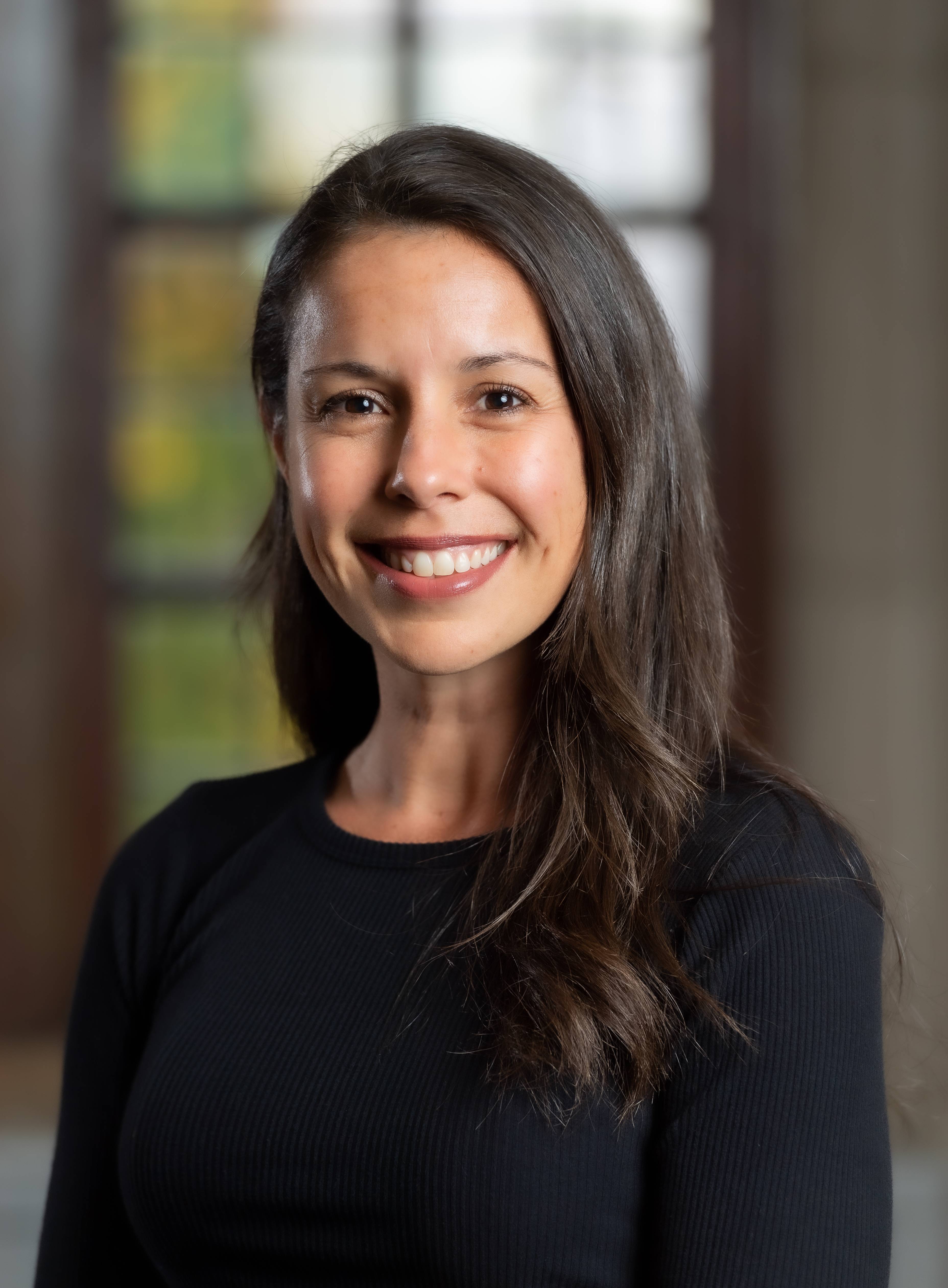
Alana Rodriguez is the Education and Outreach Program Manager at the Center for Global Health Equity and previously the Associate Director for the Center for Latin American and Caribbean Studies at the University of Michigan. She joined the University of Michigan in January 2017, bringing administrative and area studies experience from her previous position as the Administrative Coordinator of the Center for Latin American Studies at San Diego State University (SDSU). She received an M.A. in Latin American Studies and an M.P.H. in Epidemiology from SDSU. Her research interests focus on Cuban reproductive health care policy and practice. Her thesis research was compiled over two summers in Havana, Cuba and explored declining fertility rates in Cuba and in particular the impact of Cuba’s socialist policies on reproductive choice and family planning. She received a B.A. in International Business at San Diego State University and a Licenciatura en Negocios Internacionales from Tecnológico de Monterrey, Campus Guadalajara.
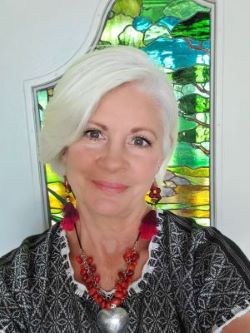
Ramona L. Pérez is Professor of Anthropology and Director of the Center for Latin American Studies at San Diego State University. She also is graduate faculty in the joint doctoral program in Global Health and for the Department of Women’s Studies. Her research focuses on food, nutrition, and health among marginalized populations; adolescent and youth identity and empowerment among transnational, Mexican and Central American migrant youth; gendered and ethnic marginalization and the state; rural to urban community growth; the political economy of tourism in Oaxaca; and the gendered and moral nature of community economies in Mexico. Her current work spans the US/Mexico border, southern Mexico, Nicaragua, and Brazil. She conducts a summer qualitative research field school, directs internship opportunities for graduate students in the border region and throughout Latin America, and coordinates the Mixtec and Zapotec language programs at SDSU. A few of her recent publications include: If you don’t use chiles from Oaxaca is it still Mole Negro? Shifts in Traditional Practices, Techniques and Ingredients of Cuisine Among Oaxacan Migrants (2015), TecnoEstética Translocal y Alimento en MexAmérica (Translocal Technoaesthetics and Food in MexAmerica) 2014; Crossing the Border From Boyhood to Manhood: Male Youth Experiences of Crossing, Loss, and Structural Violence as Unaccompanied Minors (2012); Good and Bad Death: Perspectives of Mexican American Older Adults [with E. Ko] (2012); Navigating the Slipstream of Changing Food Environments: Transnational Perspectives on Dietary Behaviors and Implications for Nutrition Counseling” [with M. Handley] (2012); and Savoring the Taste of Home: The pervasiveness of lead poisoning from ceramic and its implications in transnational care packages (2010). She received a Ph.D. in Anthropology from the University of California, Riverside in 1997.
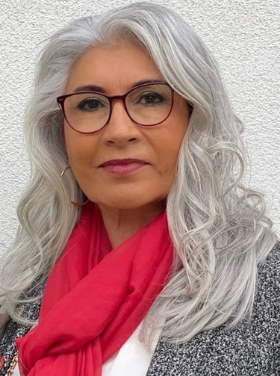
Cristina Alfaro was a professor in the College of Education at San Diego State University (SDSU). She now serves as Associate Vice President for International Affairs at SDSU. She earned her doctorate degree, in Teacher Preparation for Multilingual Learners, from the Claremont and San Diego State University joint graduate program. Dr. Alfaro taught credential and graduate level courses where her work focuses on preparing teachers in the area of English language and Biliteracy development with a global perspective. She has two decades of experience in directing both local and international teacher education programs in California, Mexico, and Europe. Dr. Alfaro is the recipient of the College of Education 2010 Excellence in Teaching Award. Her background as an elementary biliteracy teacher in ethno and linguistically diverse communities, served her well in preparing teachers to teach students how to critically read the word and the world.
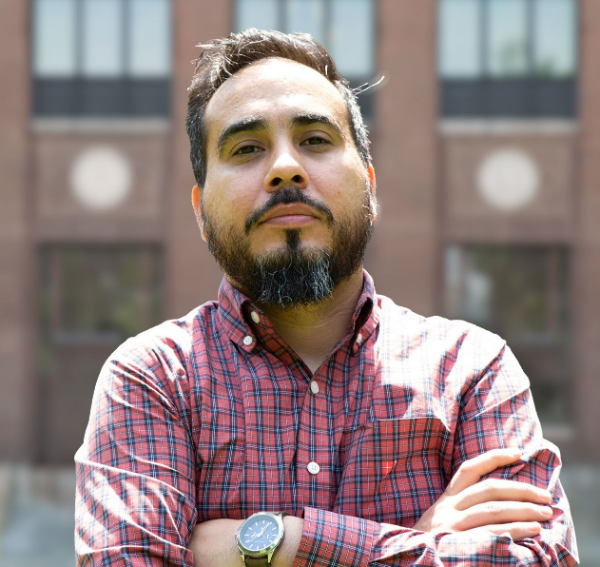
Edras Rodríguez-Torres is a member of the International Studies team in the Hatcher Graduate Library and a liaison to the Center for Latin American and Caribbean Studies at the University of Michigan. He supports the research, teaching, and learning in the area of Latin American and Caribbean Studies. This includes teaching research methods, providing research consultations, and managing the library's Latin American and Caribbean Studies Collection. His research interests include oral history and community archiving.
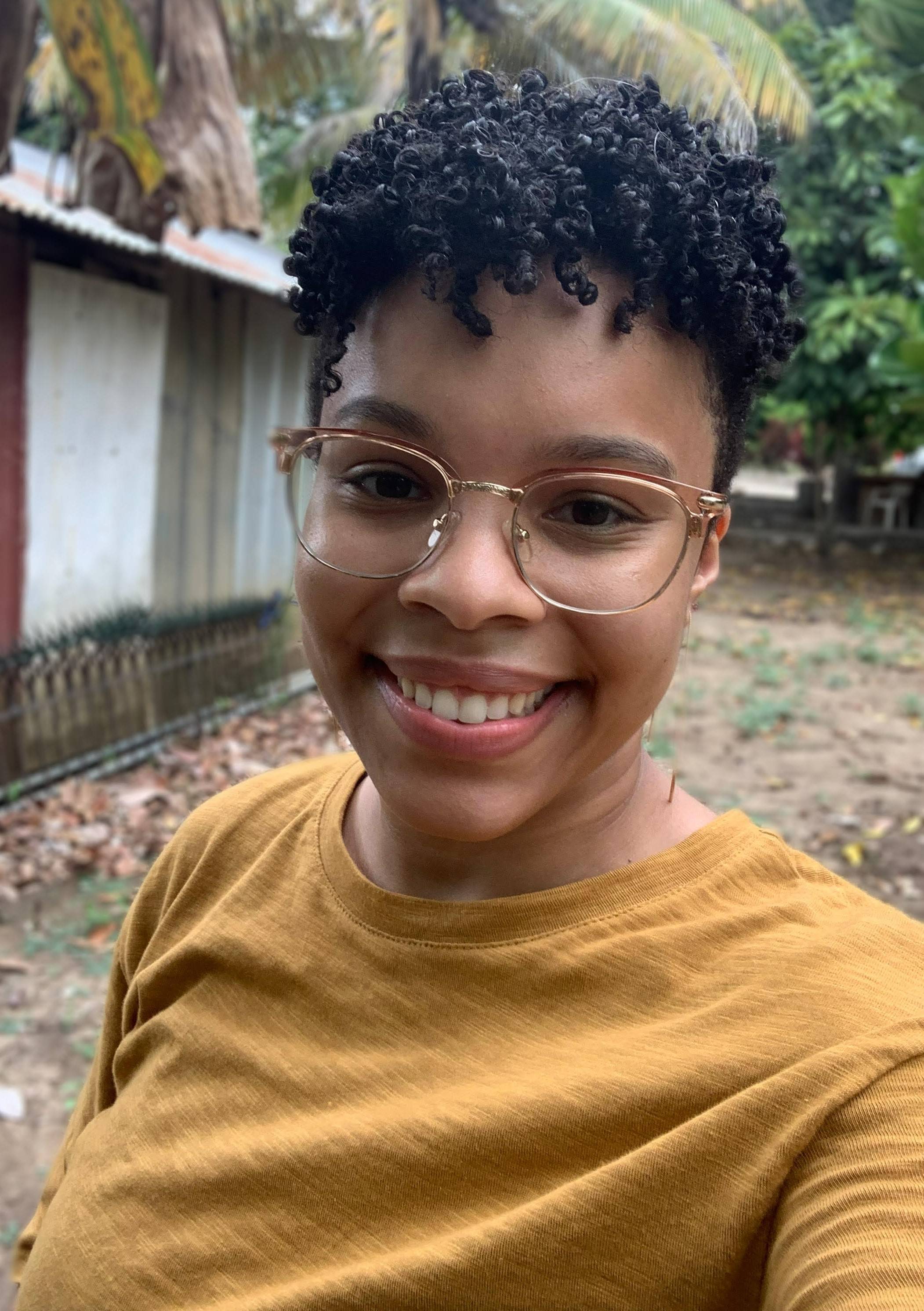
Ayleen Paola Correa Rodriguez (she/her) is a Ph.D. student in Anthropology and History who recently joined the Center for Latin American and Caribbean Studies at the University of Michigan as a Program Assistant. She has lived between New York City (Brooklynite!) and the Dominican Republic (¿Qué lo que?!) for most of her years. Her research interests surround the politics of spatial and community reconciliation post the Trujillo dictatorship in the Dominican Republic and Haiti. She has focused on the memory surrounding former torture sites used during the regime, what narratives live where so much violence occurred, and how these spaces became what they are today. Ayleen is also interested in topics on mental health, healing, and generational trauma. She attended Lafayette College as a Posse Foundation and Gates Millennium scholar, receiving her B.A. in Economics and International Affairs in 2019.
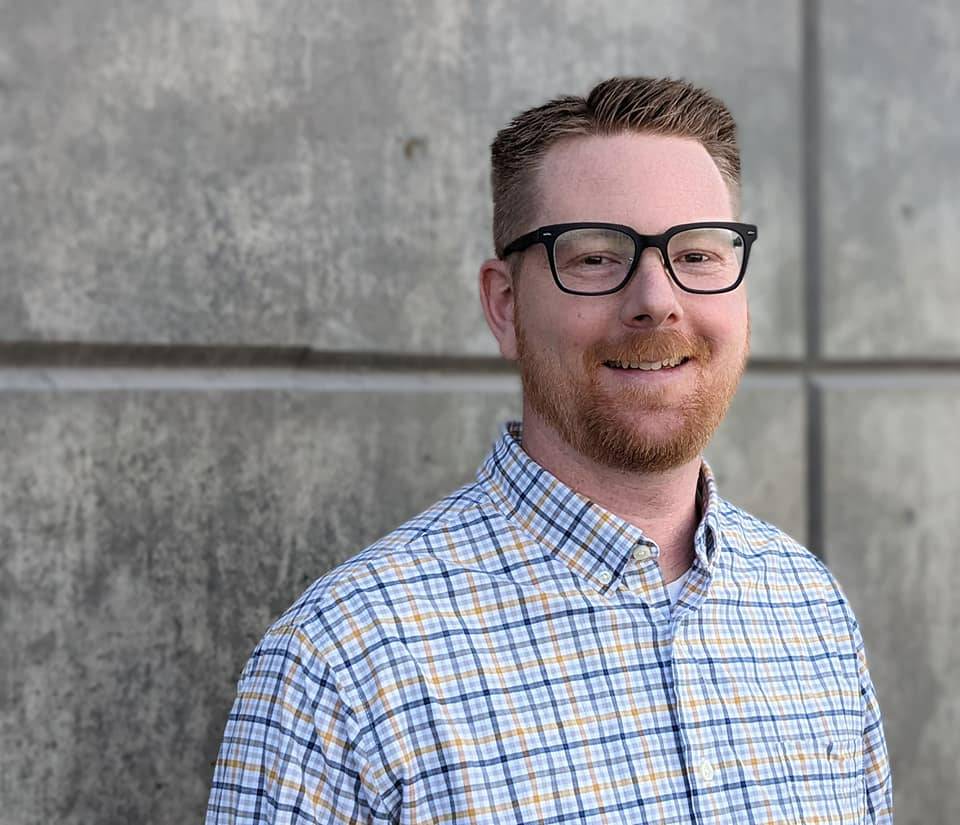
Chris Jensen is the community outreach coordinator for the University of Michigan's Center for Latin American and Caribbean Studies. Chris is currently a PhD candidate in political science at the University of Utah with a disciplinary focus on comparative politics, political theory, and public administration, where he also received a master’s degree in public administration with an emphasis in Latin American Studies in 2016. Also, Chris holds a bachelor’s degree in international studies with a focus on international development and a regional concentration in Latin America from California State University, Long Beach. After spending years volunteering in the Atacama region of Chile, Chris worked as an international project director in the INGO sector, serving marginalized communities in Peru, Ecuador, and Colombia. With a diverse project management portfolio that included local neighborhood associations, regional government contracts, and multilateral agreements with international and faith-based organizations, he has a passion for connecting people through collaborative partnerships.
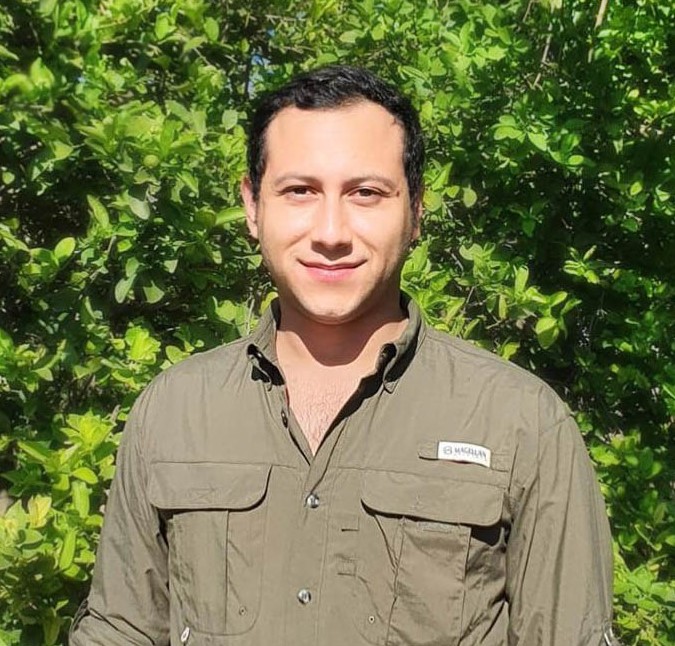
Nestor Barrera is the Academic Program Manager at the University of Michigan's Center for Latin American and Caribbean Studies. He holds a bachelor's degree in Government and Spanish from the University of Texas at Austin and a master's degree in social management from the Pontificia Universidad Católica del Perú. Nestor has experience working in the United States, Mexico, and Peru. In addition, he has developed over six years of experience in International Cooperation for Development. His focus has been on governance, rural development, poverty reduction, and social protection policies, much of this at the Food and Agriculture Organization of the United Nations, where he served as a social policy analyst.
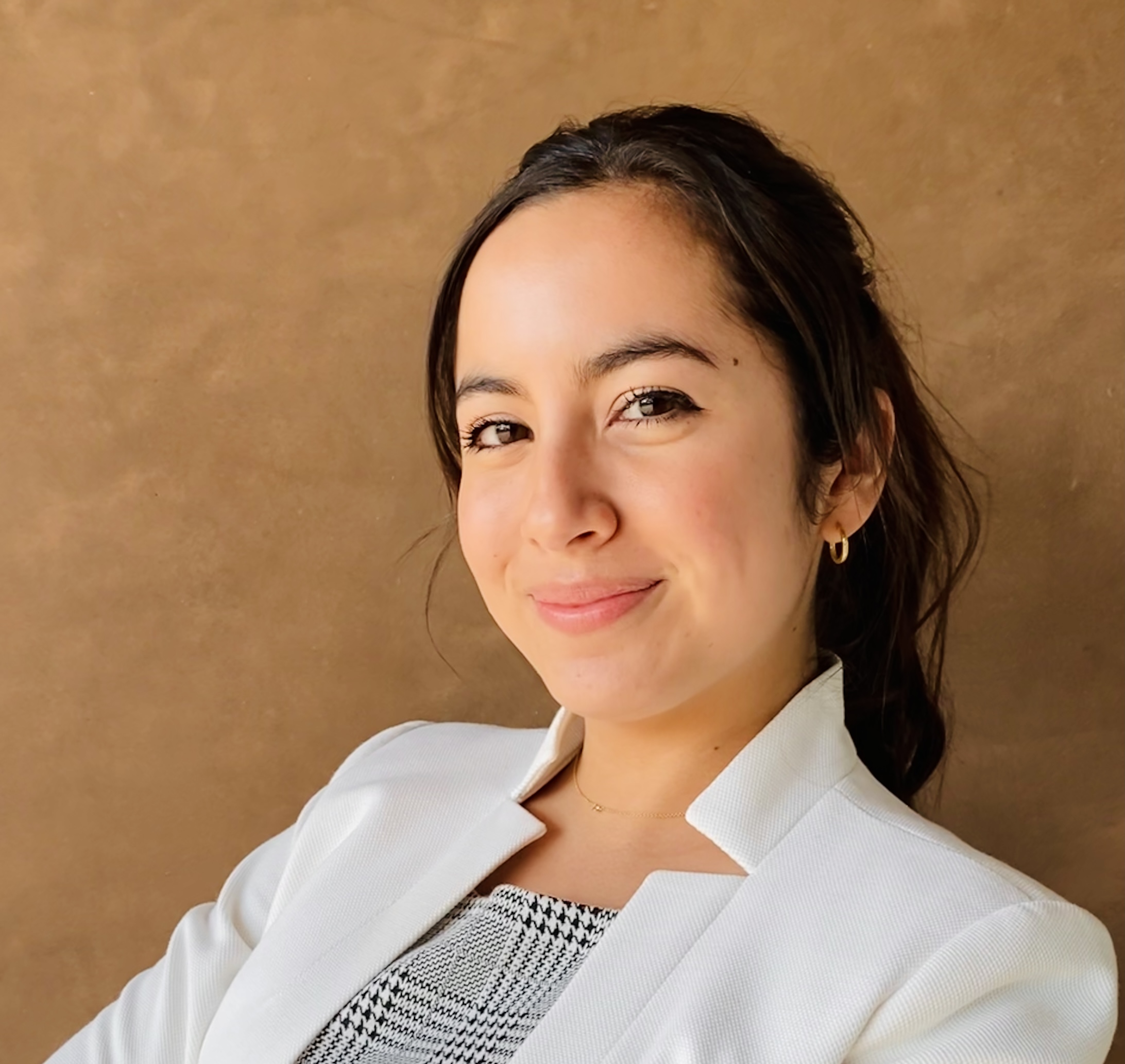
Lucia Canul is a PhD student in the Joint Doctoral Program at University of California, San Diego and San Diego State University in Public Health with a concentration in Global Health. She has a BS and an MS in Nutrition and worked as a Registered Dietitian in Los Angeles prior to starting her doctoral program. Her educational and career background in nutrition among multicultural communities has led to her current research interests in public health nutrition, Indigenous health, and equitable health in the US and Mexico. She is particularly interested in working with the Latino/a/x communities and empowering communities through their culture and heritage. She enjoys spending her time at San Diego State’s Center for Latin American Studies learning and expanding her knowledge on various cross-border topics.
Mordechay, K. & Alfaro , C. (2019). The Binational Context of the Students We Share: What Do Educators on Both Sides of the Border Need to Know? Kappa Delta Pi Record 55:1, 30-35, DOI: 10.1080/00228958.2019.1549438
Alfaro, C., Hernandez, S., Maldonado, S.I., Hopkins, M., & Forbes, C. (2019). Formadores de docentes binacionales y bilingües: A focused teacher preparation program for students we share. California Department of Education. Report Here
In development!
[Re]Humanizing the Politics of Global Migration
Dates: August 7-9, 2023.
Location: San Diego, California and Tiuana, Baja California, Mexico.
The Global Migration Education Initiative presents the 3rd annual educator workshop! The goal of this year's multi-day binational program is to provide 4th-12th grade educators from Michigan and California with deepened knowledge and awareness of global migration flows and comparative border studies as well as inclusive strategies for teaching this content in increasingly diverse classrooms.
Our workshops are binational and require crossing the US-Mexico border at the San Diego-Tijuana artery on foot. We offer a program over three days that includes experiential learning opportunities alongside educators in the San Diego and Baja California regions, seminars and panels with distinguished scholars of migration and border studies, curriculum development workshops, and more.
The Global Migration Education Initiative Approach: There are three spheres of an educator’s work that the Global Migration Education Initiative experience informs:
- Teaching students about global migration: How can educators help students develop a better understanding of this topic?
- Teaching students who have experienced global migration: Educators might be teaching students who have personally experienced global migration. How can educators equip themselves to better understand their students’ experiences and help them become valued members of our classrooms and communities?
- Teaching students who are immigrants about global migration: This is a third, integrated sphere in which we explore the nuances of teaching global migration to those for whom migration is a part of their story. How can educators help students who have experienced global migration develop a better understanding of this topic? How is this different from teaching students who have not personally experienced global migration?
Practical Applications: With deepened knowledge and awareness of global migration flows and inclusive strategies for teaching this content, educators and administrators can apply this information in multiple spaces. Our workshop is structured around practical applications in four key zones:
- Content and Concepts: How to shape the content and problem spaces that students engage with in our schools and/or classrooms.
- Pedagogy and Practice: How to guide the instructional practices and learning activities in our schools and/or classrooms.
- Advocacy and Leadership: How to inform advocacy and activism efforts that support migrant students, families, and communities.
- Institutional Culture and Climate: How to help develop more culturally sustaining and responsive schools and classrooms.
While global in scope, this workshop is truly unique in that it is situated geographically in an epicenter of international migration. Educators will participate in experiential components on both sides of the U.S./Mexico border, one of the busiest international land border crossings and a microcosm of global migration flows, and they’ll be exposed to real-world examples of how migration impacts communities, economic and political push and pull factors, and the histories and cultures of the many points of origin of migrants to Tijuana.
2023 Workshop Theme: [Re]Humanizing the Politics of Global Migration
International migration is inherently political, encompassing both the policies that permit humans to exit, enter, and seek residency in another country as well as the power relations between states and institutions. Gaps between migration policies and migration flows often lead to unjust migration outcomes, especially in a time of rising populism, authoritarianism, disinformation, and xenophobia. Politics and policies attempt to organize discourse, activities, and realities of entire communities and their lives. Yet, these same policies often erase the experience of those impacted by them, in turn violently dehumanizing the main subjects and turning their stories invisible. This workshop seeks to reframe the ways in which the politics of global migration produce harmful, discriminatory, and dehumanizing narratives of migrants and shift toward narratives that forefront the stories of the people behind migration policies and statistics.
Educators will learn strategies to bring these humanizing stories into the classroom and will be challenged to think critically about the process of [re]humanization: who should be telling these stories and how do our identities, politics, and cultures shape the way migrants’ stories are told and understood? Educators will be able to be exposed to case studies from Latin America and the Caribbean, the Middle East and North Africa, and East Asia, allowing for a comparative analysis of global migration policy and its effects on people around the world.
Costs covered by GMEI for MI Participants: The University of Michigan’s Center for Latin American and Caribbean Studies, Center
for Middle Eastern and North African Studies, the East Asia National Resource Center
cover the costs of economy-class travel to San Diego, California; lodging at a hotel
in San Diego; ground transportation to Tijuana, Mexico and all other program sites;
most meals and nonalcoholic beverages; books and learning materials; one (1) year
access to the University of Michigan Library; and a modest stipend for curriculum
development efforts.
Most of these expenses are pre-paid and organized by the University of Michigan. Participants
may be required to pay for some expenses out of pocket and submit receipts for reimbursement
(due to University policy).
- Costs covered by MI participants: Meal and beverage expenses in excess of federal allowances; optional alcoholic beverages; souvenirs; airfare or other transportation upgrades; any expenses not explicitly listed above.
Costs covered by GMEI for CA Participants: The University of Michigan’s Center for Latin American and Caribbean Studies, Center for Middle Eastern and North African Studies, the East Asia National Resource Center cover the costs of ground transportation to Tijuana, Mexico and all other program sites; some meals; books and learning materials; one (1) year access to the University of Michigan Library; and a modest stipend for curriculum development efforts.
- Costs covered by CA participants: Personal meal and beverage expenses; souvenirs; airfare or ground transportation to San Diego; any expenses not explicitly listed above. If lodging is required, our team can assist participants in making a reservation and securing our group rate, though the participant will be responsible for the associated cost.
Participants must be actively employed as an educator in a K-12 setting in Michigan or California. The program is geared towards educators and administrators working with 4th through 12th grade students and those applicants will receive preference. Educators from public and private schools are eligible. Educators must have at least one year’s experience teaching and intend to teach during the 2023-2024 academic year. Educators must teach a subject in which global migration content can be incorporated and must commit to incorporating this content over the 2023-2024 academic year. A report on the results of this activity will be required.
Participants must have a valid passport and/or other immigration documents that allow them to cross the US/Mexico border.
Previous participants in a GMEI workshop may apply, though preference will be given
to new participants.
Reporting Requirement: A report on the results of this activity will be due by September 14, 2022. Any
curriculum materials created through this project must be shared with the organizers.
Participants agree that these materials may be shared publicly on the GMEI website
or in hardcopy to interested parties.
Application process: To be considered for participation, you will be asked to fill out an application form (biographical and employment information), provide the name of at least one professional reference, and submit a short statement about how you propose to incorporate global migration content into your curriculum and how you imagine this content will impact your students.
The application cycle opens on May 17, 2023! Educators that successfully meet the eligibility criteria and application requirements will be accepted on a first-come first-serve basis until the program fills. Subject to availability, the last day to submit an application is June 23, 2023. We encourage early applicants! Please email Lucia Canul at [email protected] for more information.
Questions? Please email Lucia Canul at [email protected] or Alana Rodriguez at [email protected] for more information.
Global Migration and Inclusive Pedagogy Workshop: August 8-10, 2022
Our summer 2022 GMIP workshop took place from August 8-10, 2022 in San Diego, California and Tijuana, Baja California.
16 educators from Michigan and California particpated in this dynamic and interactive workshop. Participants attended talks by experts in global migration, visited Friendship Park in Tijuana, met with representatives of the Mexican Commision for Aid to Refugees and the United Nations High Commissioner for Refugees, toured the Latina Muslim Foundation Refugee Empowerment Center & Transitional Migrant Shelter, and learned about critical pedagogy and transformative justice in the classroom at the MAAC Community Charter School in Chula Vista.
This program was funded in part by three Title VI National Resource Center grants from the US Department of Education. Those grants are administered by the University of Michigan's Center for Latin American and Caribbean Studies, Center for Middle Eastern and North African Studies, and the East Asia National Resource Center.
Full Program Itinerary and Participant List
"GMEI was an extremely valuable experience for me. Being exposed to the abundance of information provided by experts in their fields was amazing. In addition, being able to connect with colleagues from different schools within our state, as well as the colleagues from the California area, provided an incomparable opportunity to share, discuss and learn from one another."
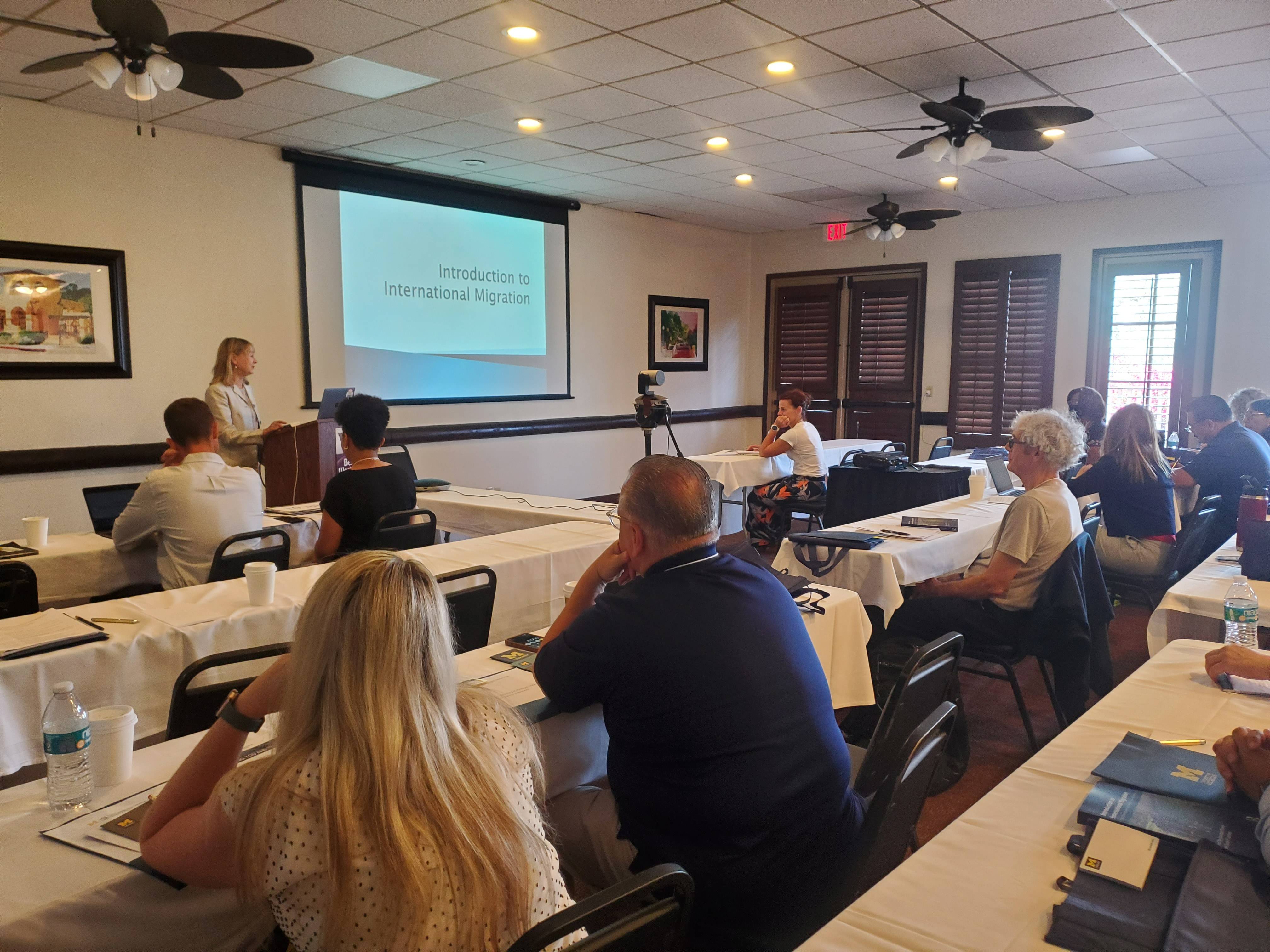
Introduction to Global Migration, Jeannette Money, Professor of Political Science, University of California, Davis
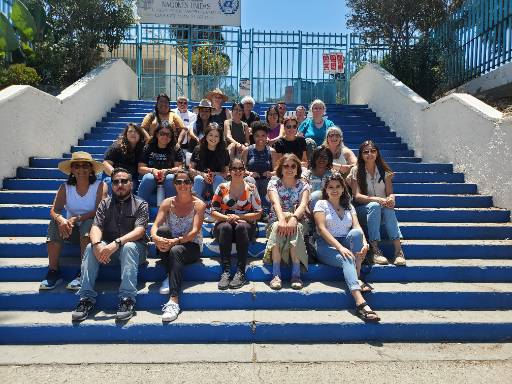
Group photo in front of the offices of the Mexican Commission for Aid to Refugees
(COMAR), Tijuana, Baja California
Global Migration and Inclusive Pedagogy Pilot Workshop: January 26-29, 2022
The Pilot Global Migration and Inclusive Pedagogy (GMIP) workshop took place from January 26 to January 29, 2022 in San Diego, CA and Tijuana, BC. K-12 teachers, curriculum coaches, and principals from Lakeshore Highschool (MI), Cesar Chavez Academy (MI) and the Rio School District (CA) attended this multi-day binational workshop to discuss opportunities for incorporating themes of global migration and comparative border studies into their curriculum and to develop inclusive strategies for teaching in increasingly diverse US classrooms.
Itinerary
January 26, 2022: Arrival to San Diego, California
- Welcome Session at the Best Western Plus Hacienda Hotel Old Town
- Opening Remarks: Cristina Alfaro, Alana Rodriguez
- Tijuana: The Kaleidoscope of Cultures: Ramona Perez
- The Students We Share in the Californias: Yara Amparo Lopez-Lopez
- Group Welcome Dinner in Old Town, San Diego
January 27, 2022
- Visit to the Global Academy of California in National City, California. Presentations by Principal Roberto Carrillo and Curriculum Coordinator Sonja Munévar Gagnon
- Excursion to Tijuana, Baja California, Mexico
- Stop 1: Mexican Customs and Immigration. Cross border on foot.
- Stop 2: Refugee Camp “El Chaparral”
- Stop 3: Playas de Tijuana. Presentation: Friendship Park and the Border Wall by Jill Holslin
- Stop 4: Cafe Pangea on Avenida Revolución. Presentation “Global Migration and its Impact on Tijuana” by Victor Clark-Alfaro
- Stop 5: Group Dinner at Caesar’s Restaurante
- Stop 6: US Customs and Immigration. Cross border on foot.
January 28, 2022
- GMEI Conference at San Diego State University Campus
- Binational Teacher Educators Network: Toward a Critical Transborder Pedagogy by Cristina Alfaro and Javier Gonzalez (in Spanish)
- Addressing the Social-Emotional, Academic, and Linguistic Needs of Newcomers by Silvia Dorta-Duque de Reyes (in English)
- Haitian Diaspora in Tijuana: A Brief Overview as Experienced Through Ethnographic Fieldwork by Anabel Gutierrez
- Global Migration Lesson Planning and U-M Library Resources: Edras Rodriguez-Torres
- Feedback and Future Directions Workshop: Sera Hernandez
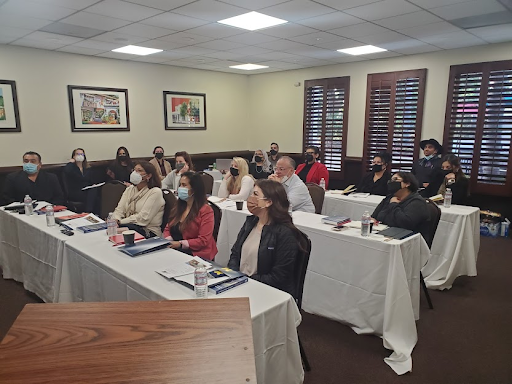
Welcome Session at the Best Western Plus Hacienda Hotel Old Town in San Diego, CA
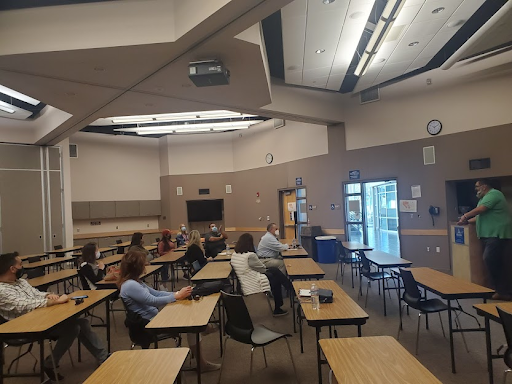
Visit to the Global Academy of California in National City, California.
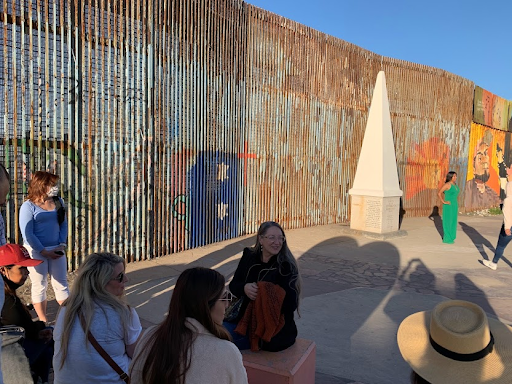
Playas de Tijuana. Presentation: Friendship Park and the Border Wall by Jill Holslin
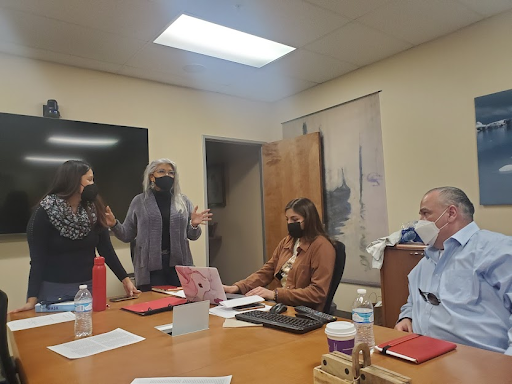
Feedback and Future Directions Workshop: Sera Hernandez (left).
Thanks to our partners and affiliates for making this pilot possible:
- Olympia Kyriakidis, Senior Director, Multilingual Education and Global Achievement, SDCOE
- Jorge Cuevas Antillón, District Adviser, Curriculum and Instruction of Dual Language and English Learners, SDCOE
- Roberto Carrillo, Principal, Global Academy of California
- Tracy Thompson, Executive Director, San Diego County Office of Education’s Juvenile Court and Community Schools
- Sonja Munévar Gagnon, English Learner Coordinator, MEGA (Multilingual Education & Global Achievement) Department, San Diego County Office of Education
- Javier Gonzalez Monroe, Universidad Pedagógica Nacional de Tijuana, Baja, CA
- Yara Amparo Lopez-Lopez, Coordinator, Secretaria de Educación Pública, Binational Migrant Education, Tijuana, Baja, CA
- Rocio Barajas Escamilla, Colegio de la Frontera Norte, Baja, CA
- Ramona Pérez, Director, Center for Latin American Studies, SDSU
- Margarita Machado-Casas, Chair & Professor of the Dual Language and English Learner Education, SDSU
- Sera Hernandez, Assistant Professor, Dual Language and English Learner Education, SDSU
- Saul Maldonado, Assistant Professor, Dual Language and English Learner Education, SDSU
- Lysandra Perez, Ph.D. Student, SDSU/CGU Joint Doctoral Program in Education
- Alexandra Fox, Program Coordinator, International Affairs, SDSU
- Lia Wesson, Administrative Coordinator, Center for Latin American Studies, SDSU
From our K-12 Educators:
In late January 2022 I participated in the GMEI “Global Migration and Inclusive Pedagogy Pilot Workshop” in San Diego. This three-day workshop enriched my understanding of the complexities associated with the San Diego-Tijuana artery, a well-worn pathway that involves the fluid flow of laborers, students, and consumers. Throughout the workshop we met with scholars whose research spotlights the economic, cultural, and political ramifications of fortified international borders. These invaluable conversations with academic experts and community leaders, however, took on new meaning following the experiential component of the workshop. On the second day of the pilot program participants crossed the US-Mexico border on foot, walking alongside migrants, passing through security checkpoints, and trodding under the shadow of the closely-guarded and highly controversial US border wall. We subsequently gathered together at the “El Chaparral” refugee camp, a site that is a temporary home to 500+ migrants. This visit further personalized the details of human migration. We engaged in direct conversation with the individuals who fled their homes and traversed dangerous terrain with the hope of securing refuge in the United States. Speaking candidly, I was ill-prepared for the distressing sight of a makeshift camp composed of plastic tarps and cardboard boxes. The flood of children who exited the camp to greet us nearly broke me emotionally. This is not my first time visiting a refugee camp, but it was my first time seeing such desperation at my nation’s doorstep. This experience interacting with migrant children, paired with our visit to the section of border wall within Friendship Park in Tijuana, offered me penetrating insights into the content I teach in my US and World History courses. For years I’ve discussed with students the history of the US-Mexico border, the flow of migrants along this boundary, and the controversy surrounding the construction of a border wall. However, my instruction lacked the insight and the emotional experience the GMEI workshop afforded me. Now I’m in a better position to challenge the students to push past the superficial details, move beyond sterile statistics, and dig deeper to reveal the stories of migrants closely associated with the ongoing crisis. in my 20+ years of teaching and my active participation in various university fellowships, overseas study tours, and conferences/workshops, I have never encountered a program that more effectively equips teachers with the resources, experiences, and knowledge they need to meet the demands of our increasingly diverse population of students. Furthermore, the team of experts GMEI has assembled possesses a wealth of wisdom and lived experiences; they are particularly well-qualified to help educators appreciate the extent to which patterns of migration in one region compare/contrast with the flow of refugees in other locations around the world. As a veteran teacher with a student audience that includes the children of migrant workers, I now have more insight into some of the economic, political, and cultural realities that are immediately relevant to my student population. Additionally, as a World History and US History teacher, I am better positioned to help students conduct comparative analyses of international borders, patterns of human migration, and the laws and fortified barriers that restrict human mobility.
The workshops I attended were delivered by subject matter experts who possess deep knowledge and who are vested to keep on digging deeper, understand root causal issues and co-construct a supporting framework that would ultimately benefit the lives of children. The presentations were perfect! I loved that these were very inclusive of attendees since the presentations included 1) collaboration, 2) communication, 3) critical thinking, and of course 4) sharing of the attendees thoughts. We as attendees bring our own experiences and those are assets that will lead to the development and improvement of this work!
I loved hearing the history behind the border wall and friendship park. Seeing and physically touching the wall that divides two nations and many families really puts things in perspective. I was enthralled by Professor Victor. He was very knowledgeable and shared many perspectives that did not come to mind right away. Each presenter knew what they were talking about and each one had a personal connection to our focus. I also liked the diversity in the attendees not just position-wise, but the variety in grade levels. It brought different perspectives to the many topics we discussed. Our visit to Tijuana really cemented the reality many of our students experience and the struggles they may face each and every day. We were provided good resources to use as we see fit in our classrooms/schools. I think the lesson plans can be adjusted to our grade level and our students. I loved the workshop and have been talking about it nonstop to all of my colleagues.
GMEI supplemented a critically important subject overlooked in K-12 curriculum.
The in-person learning experience, especially the visit to the border and to Tijuana,
was essential in providing me with a transformative and enduring understanding of
migration that I can pass on to my students with authority and authenticity.
This experience has widened my understanding of the topic of Global Migration and allowed me to make connections to instructional practices. I have been sharing my experiences with friends and colleagues because they truly impacted my own knowledge and understanding. I am very grateful to have been invited to participate in this learning opportunity and will continue to share with others.
From the Project Director:
- Cristina Alfaro, Associate Vice President of International Affairs, Professor of Multilingual and Global Education, San Diego State University; Director, Global Migration Education Initiative
At San Diego State University (SDSU) we take pride in our long history of extending professional learning opportunities for educators and academic administrators whose impact can only be amplified when they gain a deeper understanding of the cultural and linguistic diversity within our CaliBaja border region. Collaborating with the University of Michigan to see the Global Migration and Education Initiative (GMEI) first pilot come to life not only continues this tradition but has enriched SDSU’s community of educators as well.
As the director and participant in the first pilot workshop in San Diego, I am thrilled to look back on the experience as a foundation for greater collaboration to prepare our shared educators, today and tomorrow. The workshop went beyond offering a learning opportunity. It facilitated critical reflection, conversations, and relationships that will certainly bear fruit for years to come. I look forward to the future of this initiative and SDSU’s continued collaboration with the University of Michigan.
Alana Rodriguez: [email protected]